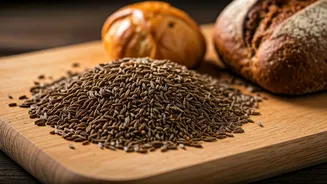Introduction to Prediabetes
Prediabetes is a concerning health condition, often regarded as a precursor to type 2 diabetes. It is characterized by blood sugar levels that are higher
than normal, yet not high enough to be classified as diabetes. This means your body isn't processing glucose effectively. This is significant because, if left unaddressed, prediabetes can lead to serious health complications like heart disease, stroke, and, of course, type 2 diabetes. Factors like genetics, lifestyle choices, and diet influence your risk. Recognizing and addressing prediabetes early on is key. This can be achieved through lifestyle modifications, including changes to your diet and incorporating regular physical activity. By taking proactive steps, you can significantly reduce your chances of developing type 2 diabetes and improve overall health.
Water's Hydrating Power
Plain water often gets overlooked, but staying properly hydrated is crucial for overall health, and especially relevant when managing prediabetes. Water helps regulate blood sugar levels by aiding in the transport of glucose throughout the body. It also supports kidney function, which is responsible for flushing out excess glucose. Dehydration can lead to increased blood sugar, making it harder for your body to manage the condition. Drinking sufficient water, usually around eight glasses a day, supports metabolic processes, ensuring they operate efficiently. Water is calorie-free, making it an excellent choice over sugary drinks that can worsen prediabetes. Make it a habit to sip water throughout the day. You can infuse water with fruits and herbs like lemon, cucumber, or mint to make it more appealing.
Green Tea's Blood Sugar Aid
Green tea is packed with antioxidants, particularly epigallocatechin gallate (EGCG), which has been linked to several health benefits, including improved blood sugar control. Research indicates that green tea can enhance insulin sensitivity, which means your body becomes more effective at using insulin to move glucose from the bloodstream into cells. Green tea also has the ability to slow down the absorption of sugar from food, preventing rapid spikes in blood sugar levels. Regular consumption of green tea has been associated with a lower risk of developing type 2 diabetes. It is a good idea to drink several cups of green tea per day, but be mindful of caffeine intake. You can also experiment with different varieties of green tea to find one that you enjoy.
Herbal Teas for Support
Various herbal teas have properties that may help manage blood sugar levels. For instance, cinnamon tea can enhance insulin sensitivity, similarly to green tea. It contains compounds that mimic the effects of insulin, helping your body utilize glucose more effectively. Chamomile tea has also been shown to improve blood sugar control. Chamomile contains antioxidants and anti-inflammatory properties that can support overall health. Other teas to consider include hibiscus tea, known for its ability to lower blood sugar and blood pressure. Always choose unsweetened teas to avoid adding extra sugars. Incorporating herbal teas into your daily routine can provide additional support in managing prediabetes, alongside dietary and lifestyle adjustments. Consult with a healthcare professional before making major changes to your diet.
Vegetable Juices' Benefits
Freshly made vegetable juices can provide an array of essential nutrients without the high sugar content found in fruit juices. Juices made with non-starchy vegetables such as spinach, kale, cucumber, and celery are low in carbohydrates and can help manage blood sugar. These juices are rich in vitamins, minerals, and antioxidants, which support overall health and may improve insulin sensitivity. Be mindful of the quantity of juice consumed, as even natural sugars can impact blood sugar levels. Avoid adding fruits to your vegetable juice, as they increase the sugar content. Preparing juices at home allows you to control the ingredients and avoid additives. Consider experimenting with different vegetable combinations to discover flavors you enjoy, providing your body with nutrients and potentially assisting in the management of prediabetes.
Smoothies: A Healthy Option
Smoothies are a great way to combine various nutrient-rich ingredients into one beverage. For individuals with prediabetes, focus on incorporating low-sugar fruits and plenty of vegetables. Add ingredients like spinach, kale, berries (in moderation), and a small amount of protein, such as protein powder or Greek yogurt, to help stabilize blood sugar levels. Be cautious with fruits like bananas or mangoes, which contain higher sugar content. Smoothies can provide fiber, which slows down the absorption of sugar, and can keep you feeling fuller for longer. When preparing smoothies, prioritize whole, unprocessed ingredients. This is a customizable way to meet your nutritional needs, and a great alternative to high-sugar drinks. A well-balanced smoothie can be a nutritious and enjoyable addition to your prediabetes management plan.


















